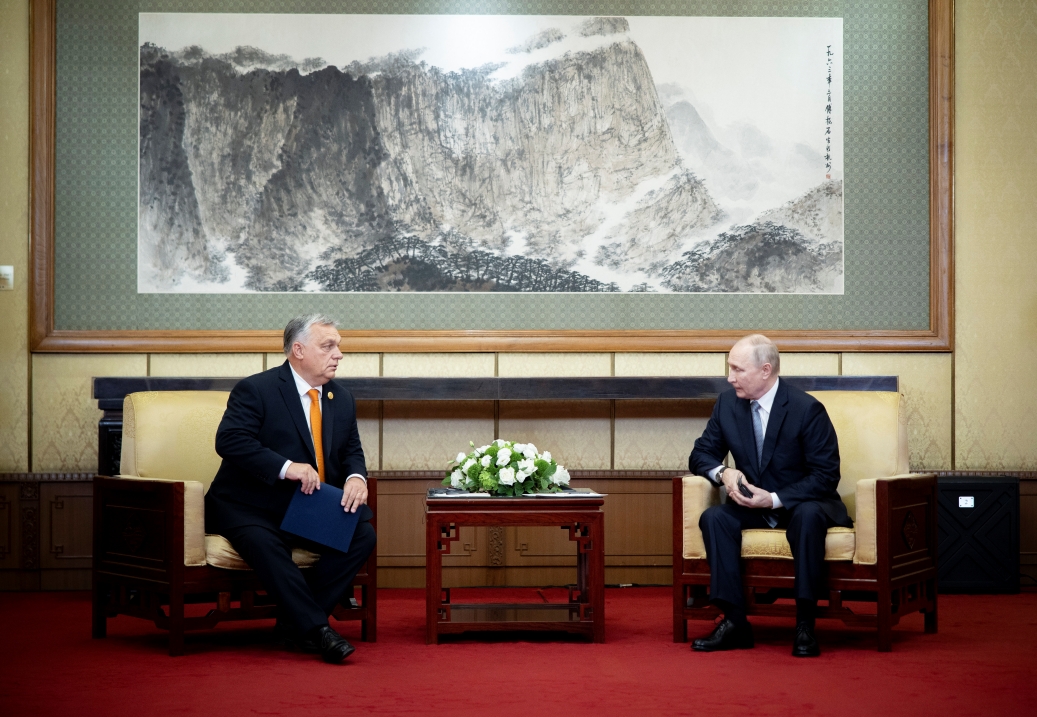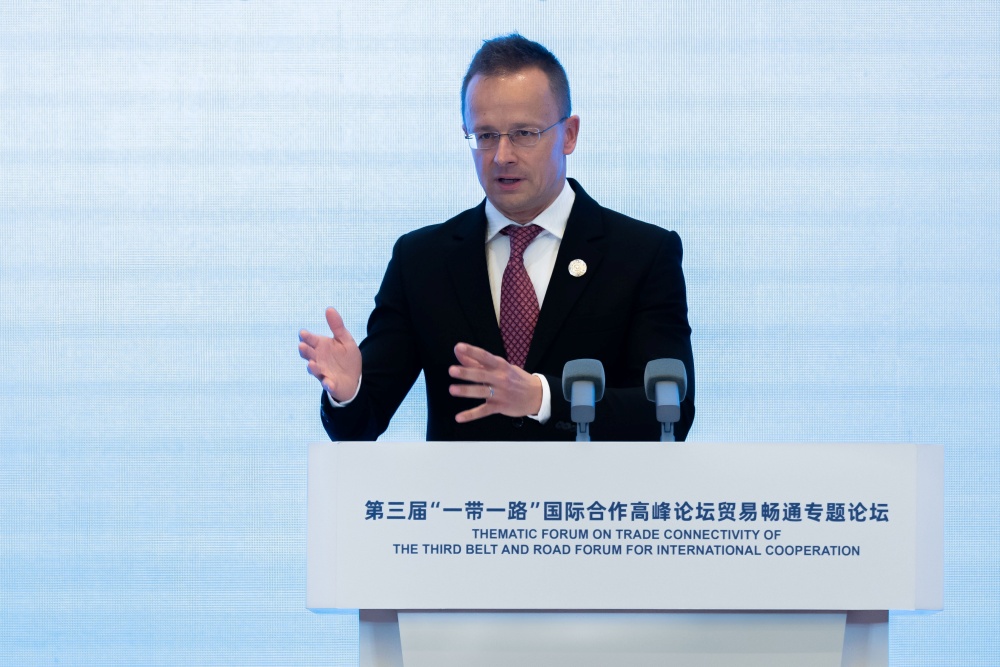
The Beijing economic summit is redrawing historic geoplotical faultlines.Continue reading

Efforts to separate the interdependent economies of the East and the West pose a serious risk to the jobs of millions of people, Minister of Foreign Affairs and Trade Péter Szijjártó said in Beijing on Wednesday.
Speaking at the international forum of the Belt and Road initiative, the minister of foreign affairs spoke for the first time about the serious challenges of recent years, stressing that the world economy has been turned upside down twice in a short period of time.
He pointed out that it was important to learn lessons from the past years, one of the most important being that the world could have tackled difficulties more successfully if it had approached them on the basis of cooperation rather than hostility.
If mutual respect does not return to international politics, we will end up in a situation we all want to avoid,”
he said.
The minister also pointed out that the Eastern and Western economies are interdependent, and said that those who deny this are probably doing so on ideological grounds, not on the basis of facts. He said that
efforts to separate the Eastern and Western economies are extremely damaging, posing a serious risk to the economy and putting millions of jobs at risk.
Minister Szijjártó believes that Hungary is the best example of this, having made huge efforts in recent years to become an important meeting point for Eastern and Western investment.
He stressed that all three German premium car brands will have production bases in Hungary, and that five of the world’s top ten electric battery manufacturers will soon be present. He pointed out that this government strategy will make Hungary a successful and inescapable player in the transforming automotive industry in Europe, guaranteeing that economic growth will be sustained. “If this approach works in Hungary, it should work worldwide,” the Foreign Minister added.
“If the world is divided into blocs again, it will be a global failure. However, if the next period of connectivity and mutual respect returns, then it will certainly be a more peaceful and prosperous period, and I think China’s role is critical in this,” he concluded.
On Wednesday evening, Szijjártó also reacted to a comment by Estonian Prime Minister Kaja Kallas on the meeting between Viktor Orbán and Vladimir Putin. Kallas described Hungarian Prime Minister Orbán’s handshake with Russian President Vladimir Putin as very unpleasant and against logic, given the history of Budapest and Moscow.
Szijjártó wrote in his post that
it was hypocritical that Estonian Prime Minister Kaja Kallas was shocked by yesterday’s meeting between Prime Minister Viktor Orbán and Vladimir Putin.
“With great respect, this Kaja Kallas is the Kaja Kallas whose husband was recently found to have owned a company that supplied EUR 30 million worth of raw materials to a Russian factory even after the outbreak of war, despite the ongoing conflict,” the post read.
Via MTI, Featured image: MTI/KKM